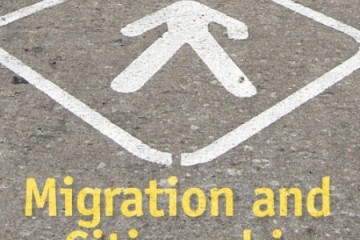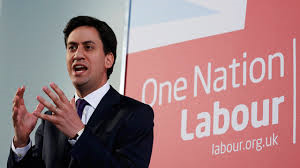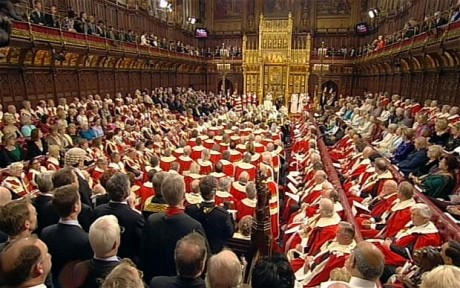
Citizen enforcers? Implementing immigration controls through devolution and allegation
In recent years there has been an increasingly systematic integration of immigration controls into a range of institutions. The ability to access healthcare, social housing, benefits and legal aid, to seek employment, open a bank account, obtain a driving license, and rent a property have each been tied to immigration status. This linkage is mediated by more than a binary between legality and illegality. The regulation of mobility through legal frameworks at the European and international level, as well as the domestic, has generated a range of rights – to reside, of abode, to work, to rent – that are shaped by the interaction of multiple statuses – “EEA national”, “asylum seeker”, “habitual resident”, “jobseeker”, “worker”, “self-sufficient person”.
The rights and entitlements of citizens, as well as migrants, are curtailed and impacted by immigration controls. A citizen cannot claim means-tested benefits without proving habitual residence, they cannot marry a non-EEA national without verifying the partnership’s legitimacy in the eyes of the state, and they cannot bring this spouse into the UK without earning over a minimum income threshold. More broadly, citizens cannot avoid immigration controls without first proving that they are not subject to them.
It is important to understand and reflect upon the consequences of these controls. However, it is also important to think about where the responsibility for their implementation lies. As immigration controls are integrated in an increasingly systematic way into the workplace, university, school, hospital, jobcentre, letting agency, registry office and bank they are pushed away from the centralised state and into the community. This entails both a diversification and a shift in the actors compelled to put them into practice on the ground. Last week’s European Court of Justice decision on the Dano v Jobcentre Leipzig case brings this into focus. For the individual who cannot be subject to formal immigration controls but who can be excluded from social benefits if economically inactive, immigration enforcement responsibilities fall not to the immigration officer but to the frontline public service worker.

Citizenship and identity: The new Britons in an age of resurgent Englishness
In the 1990s, commentators across the political spectrum observed the rise of civic British national identity in the UK. Both the Major and Blair governments promoted “active citizenship” and rolled out polices such as Citizenship Ceremonies for the naturalised and citizenship education in schools – with the civic republican philosopher Bernard Crick a significant influence over many of these reforms. From a very different angle, the Britpop moment and “cool Britannia” brand made the Union Jack fashionable. A confident multiculturalism and relaxed, mongrel Britishness was part of the zeitgeist.
From the vantage point of 2014, that moment seems very distant. In the last decade, we have seen instead a resurgence of the infra-national identities of the UK’s constituent countries: the renaissance of Scottishness in Scotland, the rise of Welshness in Wales, and – much less reflected upon – the return of Englishness in England.
The return of the English
The 2011 Census included a national identity question. It showed that, in England, Englishness is the predominant national identity, expressed by two thirds of the population (with 58% choosing only English identity), while just 29% identify with Britishness (19% choosing only British identity).
For many, this kind of Englishness is probably expressed activities such as cheering on (or moaning at) English sporting teams. But we have also seen its political mobilisation: in resentment at Scottish power in Westminster, in the sinister street theatre of the English Defence League and its offshoots, and in the rise of UKIP.
It is important, however, to note the geographical and generational dynamics of this resurgent Englishness.

Ed Miliband’s Labour and ideology. Did New Labour change the party forever?
In 2010, Ed Miliband inherited a party troubled by tensions and confusion. After three electoral victories and 13 years in office, New Labour had lost its appeal due to the legacy of the Iraq war, a series of burning scandals and endless backbenchers’ rebellions. Blair had resigned in 2007, replaced by his eternal rival Gordon Brown, with many of those within Labour seeing him as more traditionally left-wing and able to rescue the party from its decline. Yet, the 2008 financial crisis had promptly interrupted Brown’s brief honeymoon with the electorate and Labour had lost the 2010 General Elections, leading to a Conservative-Lib Dem coalition government. Ed Miliband, a young Brownite, then won a bitter leadership contest, in which the main adversary was his brother David, one of Blair’s closest advisors. Ed obtained the support of most of the Unions and of many social-democrats who had at some point started to despise the Blairite model, examples being Roy Hattersley and Neil and Gladys Kinnock. He did so by differentiating himself from the previous leadership, declaring that New Labour was over and running a quite leftist campaign.
Four years later, many question what the current leadership actually stands for and whether Labour has witnessed an authentic ideological revision. On the one hand, Miliband launched the new slogan ‘One Nation Labour’, inspired from a famous Disraeli’s speech, which has been praised as an attempt to revitalise socialism in the context of the current economic crisis, as well as criticized for flirting with rightward doctrines such as compassionate conservatism. On the other hand, he has often declared his preference for an open and pluralist model of leadership and defended the value of a lively internal debate. Therefore, despite describing himself as ‘a European social-democrat who takes inequality very seriously’, Miliband has witnessed and even promoted the rise of a number of ideological sensibilities.
Party factions, think-tanks and research institutes defending sometimes very different positions, such as Progress, Compass, Tribune or Briefing, all contributed to this lively debate.

Tilling the fields where forced labour grows
Unless you are following the story closely, you may not have noticed the worryingly slow progress of the “Modern Slavery” bill through parliament. It faces its third reading in early November, and so far there is no outright opposition. Of course no one is going to speak up for modern slavery. It is a dreadful thing, and no parliamentarian would defend it for a moment.
Instead, the delays have come from wrangling over wording, caused by the politics over immigration. The problem is that Home Secretary Theresa May describes the crime as “human beings used as commodities for the personal gain of others” (Hansard, 8 July 2014 col. 166), provoking the question of how this form of exploitation differs from other “everyday” exploitation faced by many (if not most) workers.

A mayor for greater Bristol?
So, the Bristol Post have launched their Make Bristol Greater campaign, aimed at raising the debate about what the Bristol city region should be called and what its governance should look like. Their comment piece picks out the geographical and political constraints holding Bristol back, and for once I find myself agreeing with much of what is said in the article. Bristol is so tightly constrained by its administrative boundaries that don’t even cover the whole urban area, that decision making about strategic issues across council boundaries is like a game of ‘chance’ or ‘bluff’, based on little more than the small minded politics of jealousy and competition. We constantly compromise and reduce decisions to the lowest common denominator because we are afraid …

Events in Iceland show that a UK constitutional convention should involve politicians as minimally as possible
After the financial crash of 2008, Iceland’s prospects looked promising in two respects. First, the government decided to call the IMF to the rescue following the Central Bank’s botched attempt to get Putin’s Russia to protect Iceland from the IMF’s ‘Kiss of Death’. The Fund-supported recovery program served Iceland well. Second, up against the wall, Parliament gave in to the demands of the ‘Pots and Pans Revolution’, including the protesters’ demand for a new constitution to be drawn up by the people, not by politicians or their lawyers. From 1944, when Iceland adopted what was essentially a translation of the Danish constitution from 1849, Parliament had consistently failed to keep its promise of constitutional reform. Without the crash, there would …

Alternatives to fixed-term elections
Until the present coalition government introduced the Fixed-term Parliaments Act, in 2011, the UK Prime Minister had discretion to call elections at will, a power often used for partisan advantage. As Petra Schleiter reports in her recent post on Politics in Spires, 60% of the UK’s post-war elections were called early (i.e. more than six months before required). Further, her analysis suggests that this gave incumbents a 6% vote gain, roughly doubling the PM’s chances of remaining in office.
The Fixed-term Parliaments Act allows early elections to be called only in very restricted circumstances (either with support of two-thirds of the House of Commons or following a vote of no confidence after which no alternative government is approved by the Commons within 14 days). Schleiter points to a number of advantages of this; not only does it stop PMs from calling elections opportunistically, in order to increase their chances of victory, but depriving them of this power also prevents them from using the threat of an election to bully backbench MPs or coalition partners, thereby making the government more accountable to parliament.
However, in focusing on the advantages of fixed-term elections, Schleiter does not consider whether there are certain advantages to the old system, in which an election could be called at any moment.

And the House of Lords trundles on
In an election held this month, Raymond Benedict Bartholomew Michael Asquith, third earl of Oxford and Asquith was elected to take up the seat in the House of Lords vacated by the death of Robert Alexander Hold Methuen, the seventh baron Methuen. The ballot was conducted using AV (the Alternative Vote), but Lord Oxford received 155 votes of the 283 votes (55%), so preferences were not taken into account. (The proxime accessit, Lord Napier and Ettrick, received only 35 votes, and seven of the fifteen candidates received only one vote or none at all.) Turnout was 36%. All members of the House of Lords (currently 776) were eligible to vote. The new member will sit with the Liberal Democrat peers, as did his predecessor.
This unusual process is a result of a compromise reached when the House of Lords was reformed in 1998 and 1999. The Labour Party manifesto in 1997 had proposed to remove all of the hereditary peers from the house, but in a departure from the Salisbury-Addison convention the Lords objected and prevailed, forcing the government to retain 92 of them. (McLean 2009: 234) (In reality, only ninety were retained. The other two hereditaries are held ex officio by great officers of state: the Earl Marshal and the Lord Great Chamberlain, who are peers.) Lord Cranborne, who as Conservative leader of the Lords engineered this bargain, failed to tell his leader William Hague about it and was sacked when Hague learned of it independently.









